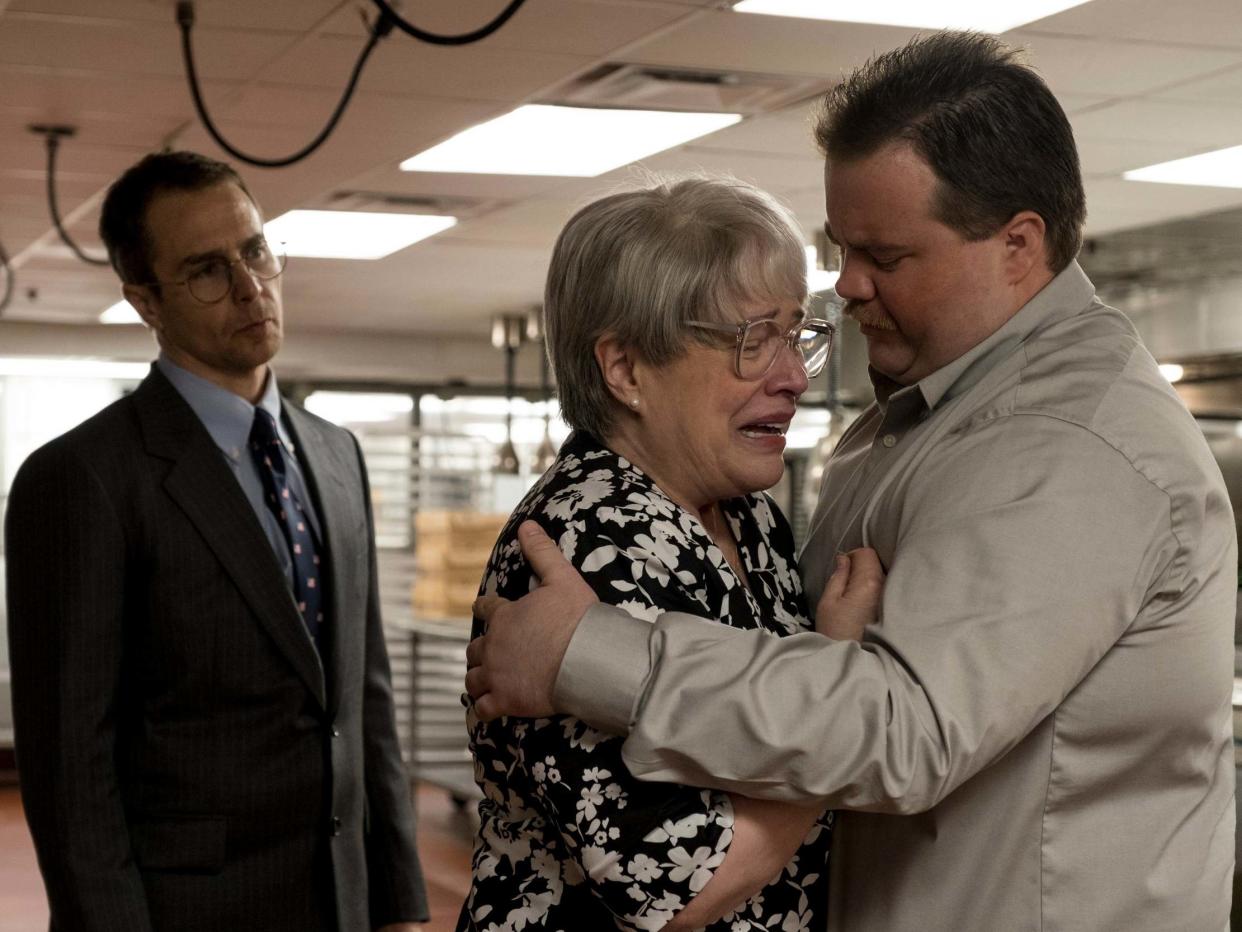Richard Jewell review: Clint Eastwood turns a real-life hero into a martyr to his cause

Dir: Clint Eastwood. Cast: Paul Walter Hauser, Sam Rockwell, Kathy Bates, Jon Hamm, Olivia Wilde. 15 cert, 131 mins.
Marie Brenner’s article “An American Nightmare: The Ballad of Richard Jewell”, published in the February 1997 edition of Vanity Fair, is a dispiriting read. The story’s a noxious brew of crossed boundaries, bureaucratic incompetence, and careless assumptions. The year before, Jewell had been hired as a security guard at Atlanta’s Summer Olympics. During his shift at a Centennial Park concert, he spotted a suspicious-looking backpack tucked underneath a bench and alerted the authorities. While he and others helped to push the crowd back, the bomb detonated. It had been packed with nails – created to kill as many people as possible. One woman died in the blast and over a hundred were injured. A cameraman suffered a fatal heart attack while running to the scene. There was no doubt Jewell’s actions saved many, many lives.
At first, the media hailed him as a hero. But the praise was short-lived. A report, published three days after the blast in The Atlanta Journal-Constitution, revealed that the FBI had pinned him as a possible suspect. He fit the “lone bomber” profile: Jewell was a socially awkward white male who lived with his mother, collected guns, and had an obsession with entering law enforcement. Jewell was never charged, but it only took days for him to be declared guilty in the mind of the American public. It’s a tragic story. More importantly, it’s one that places the relationship between the media and government under the spotlight and asks: what boundaries have been crossed under the pretence of our own protection?
But, in Clint Eastwood’s hands, Richard Jewell becomes a martyr to the director’s career-long cause: heroism when it exists in direct opposition to authority. Think back to Tom Hanks’s Sully railing against the bureaucrats who dared question his valour. It’s basic libertarianism: individuals are good, governments are bad. But Eastwood’s so eager to wag his finger at audiences that the film is left with all the dramatic subtlety of a seaside puppet show. Jon Hamm’s FBI agent and Olivia Wilde’s reporter are both cackling villains, robbed of any motivation outside of a rapacious desire to exert their power. They’re defeated only when Jewell and his lawyer (a slick Sam Rockwell) build up the courage to give these suit-wearing parasites a public scolding – the FBI back down right after Jewell yells at them in a conference room.
Billy Ray’s framing of Jewell’s story shifts from unsubtle to irresponsible when it comes to Wilde’s character, Kathy Scruggs. The real Scruggs, who died in 2001, isn’t around to defend herself from this film’s accusations that she slept with her source in order to get the tip that Jewell was being considered as a suspect.
It’s a vicious streak that’s softened only by the measured, humanistic performances of Paul Walter Hauser and Kathy Bates as Jewell and his mother Bobi (although the latter’s Oscar nomination is still a surprise). Hauser, especially, doesn’t shy away from Jewell’s flaws: he’s a secret authoritarian who gets a tingle of excitement whenever he’s in control of the room. It’s a performance that respects the humanity of its subject – unlike the film desperate to turn him into a political mascot.


